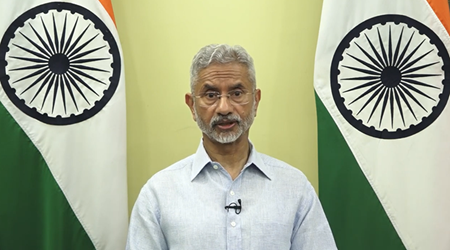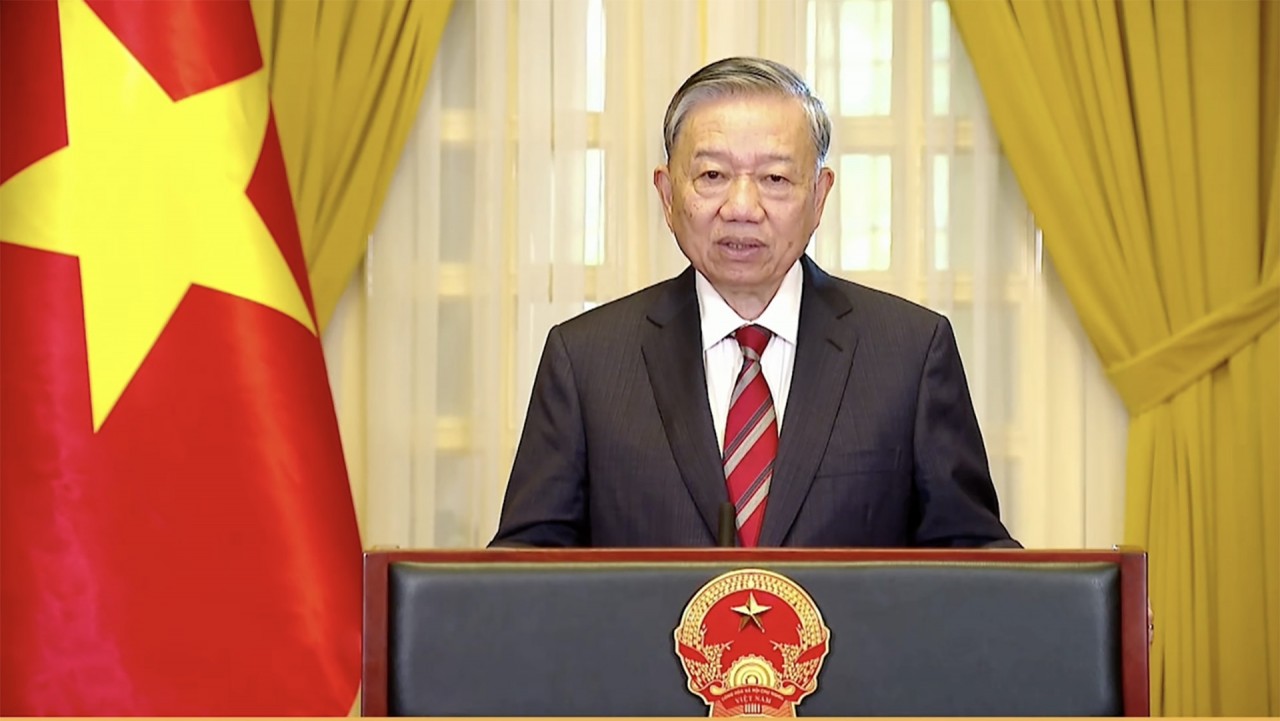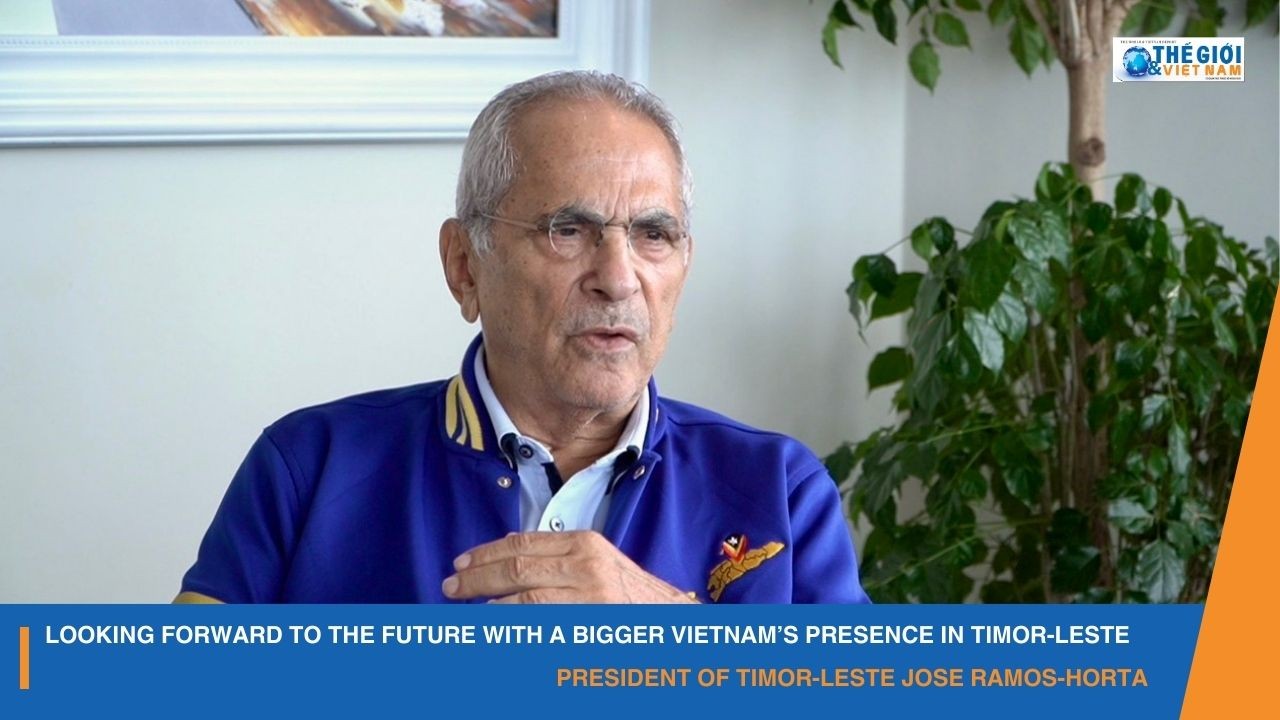
Vietnam-ASEAN economic cooperation: Vibrant and practical
Latest
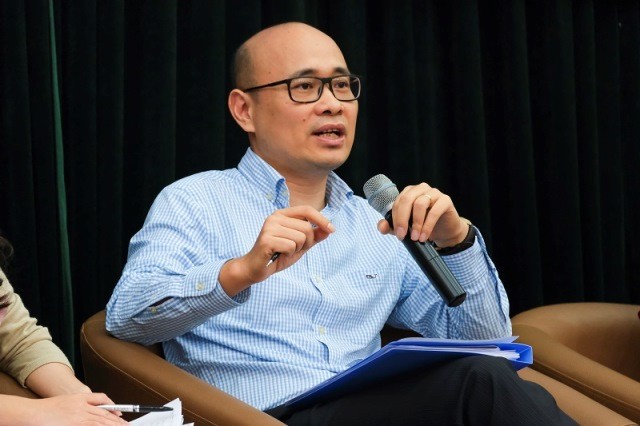 |
| Mr. Luong Hoang Thai, Director-General of Multilateral Trade Policy Department (Ministry of Industry and Trade). (Photo: WVR) |
What do you think about the recent developments of economic cooperation, one of the three main pillars of Vietnam-ASEAN cooperation?
Getting the ASEAN membership on July 28, 1995 was Vietnam's first milestone in its international integration process that created momentum for subsequent further steps of integration into the regional and international "playing fields". This also laid the foundation for Vietnam to consolidate and expand cooperative relations with numerous countries around the world.
Over the past 27 years, Viet Nam has proactively and actively participated in ASEAN economic integration and joined with other ASEAN member countries to build an important foundation for the official formation of the ASEAN Economic Community (AEC) on December 31, 2015, and continued to further develop the AEC for the period up to 2025 with 5 characteristics: (i) A highly integrated and cohesive economy; (ii) A competitive, innovative and dynamic ASEAN; (iii) Improved connectivity and specialized cooperation; (iv) A resilient, comprehensively developed, people-oriented and people-centred ASEAN and a global ASEAN.
In the general picture of ASEAN’s development over the past 55 years, economic cooperation has always been vibrant with various concrete and practical outcomes. Vietnam has seized opportunities in ASEAN economic integration to expand export markets, take the first steps in participating in regional supply chains, contribute to economic growth, reform domestic policies, attract investment, and build high-quality human resources in line with integration requirements.
Currently, the ASEAN Free Trade Area is one of the cooperation frameworks where Vietnam has the strongest commitment to opening up the market of goods. Vietnam's import tax elimination rate for ASEAN countries reached 98% (whereas other ASEAN countries eliminated about 98.7% import tax for Vietnam's exports).
ASEAN economic integration has contributed significantly to enhancing trade between Vietnam and other intra-bloc countries. Since its accession into the Free Trade Area (AFTA) in 1996, total import-export turnover between Vietnam and the ASEAN region has increased nearly 12-fold, from 5.9 billion USD in 1996 to nearly 70 billion USD in 2021, in which export turnover of our goods to ASEAN increased 18 times, from 1.6 billion USD in 1996 to about 28.9 billion USD in 2021.
Through deep and comprehensive cooperation between Vietnam and ASEAN, the association has become the core that helps Vietnam to promote economic, trade and investment cooperation with other important partners by signing and implementing free trade agreements (FTAs) between ASEAN and these partners.
Currently, among the 15 FTAs that Vietnam has signed, 8 are within the framework of ASEAN cooperation. Notably, ASEAN and five partner countries including China, Japan, South Korea, Australia, and New Zealand signed the Regional Comprehensive Economic Partnership Agreement (RCEP) in 2020, under the Vietnamese ASEAN Chairmanship.
RCEP creates a free trade area with the world’s largest demographic scale (about 2.2 billion consumers), holds vast potential for the development of value chains in the region, and helps to further promote the economic development of ASEAN countries, including Vietnam. It can be seen that economic cooperation within ASEAN has created the basis for Vietnam's long-term extensive international economic integration.
After 27 years of ASEAN membership, what are some of the outstanding achievements of the Vietnamese economy?
After becoming an ASEAN member in 1996, Vietnam officially joined the World Trade Organization (WTO) in January 2007, and thereafter, eventually, the entering into FTAs between ASEAN and such external partners as China, India, Australia, New Zealand, Japan, the Republic of Korea, Hong Kong (China) and bilateral FTAs between Vietnam and Japan, Republic of Korea, Chile.
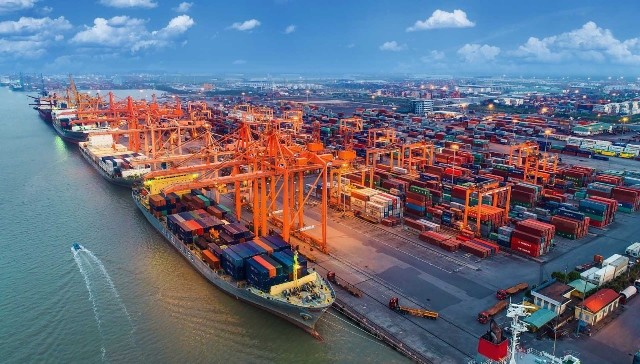 |
| ASEAN economic integration also brings many positive impacts on Vietnam's goods exports. (Source: Investment Newspaper) |
In recent years, Vietnam has joined the new generation FTAs such as the Comprehensive and Progressive Agreement for the Trans-Pacific Partnership (CPTPP), the European Union-Vietnam Free Trade Agreement (EVFTA) and the United Kingdom-Vietnam Free Trade Agreement (UKVFTA).
Looking back at the country's 27-year process of international economic integration, it can be seen that joining ASEAN is an important decision that created a solid foundation for Vietnam's integration with the world.
ASEAN membership has helped facilitate the access of Vietnamese goods and services to the markets of other Southeast Asian countries, and the signing of 7 FTAs with ASEAN's partners created favourable conditions for Vietnam’s goods to penetrate into larger markets and exponentially increase Viet Nam's export turnover to these countries.
For example, Vietnam's export turnover to China increased from more than 3 billion USD to nearly 56 billion USD; to the Republic of Korea from 664 million USD to 21.9 billion USD; to Japan from 8.5 billion USD to 20.1 billion USD in 2021, etc.
After 27 years of joining ASEAN, the Vietnamese economy has seen remarkable changes in all aspects. In 1995, Vietnam's GDP per capita was only 276.8 USD, but by 2021 this figure was 3,694 USD, representing a 13-fold increase. The scale of the economy increased more than 17 times from 20.7 billion USD GDP in 1995 to 362.6 billion USD in 2021, ranking sixth in ASEAN. Vietnam's export of goods increased from 5.2 billion USD in 1995 to 336.3 billion USD in 2021.
Besides growth in export turnover, ASEAN economic integration also had other positive impacts on Vietnam's goods exports, such as promoting the diversification of export product structure, enhancing the attraction of foreign direct investment (FDI), as well as expanding investment opportunities for other ASEAN countries.
In addition, ASEAN economic integration also contributed to creating positive changes in the development and improvement of domestic policy institutions, laws and procedures, and creating an increasingly transparent business and investment environment, thereby helping to improve Vietnam's ranking in the World Bank's (WB) annual report on business environments.
In light of the many challenges currently facing the world economy, including the COVID-19 pandemic, the Russia-Ukraine conflict, inflation, etc., what will be the focus of Vietnam in cooperation with ASEAN?
Currently, the world economy is facing multiple challenges. The COVID-19 pandemic and subsequently the Russia-Ukraine conflict have had adverse effects on the global and regional supply chains, energy supply, and inflation, affecting all economies around the world. ASEAN is also facing various challenges, including climate change, natural disasters, resource depletion, supply chain disruptions, etc.
| In the general picture of ASEAN development over the past 55 years, economic cooperation has always been a vibrant field of cooperation with many concrete and practical outcomes. Vietnam has seized opportunities in ASEAN economic integration to expand export markets, initially participate in regional supply chains, contribute to economic growth, reform domestic policies, attracting investment, building high-quality human resources in line with integration requirements. |
Therefore, the first goal of ASEAN in the near future is to stabilize and recover the economies after the COVID-19 pandemic, reduce dependence and promote supply diversification, and strengthen regional links.
In this spirit, Cambodia - the ASEAN Chair in 2022 - has launched the theme “ASEAN A.C.T.: Addressing Challenges Together” with 19 initiatives, prioritizing economic cooperation for ASEAN 2022 in various fields, including enhancing ASEAN's competitiveness, strengthening digital connectivity, science, technology and growth and development of ASEAN integration.
In addition to the aforementioned issues, there is still ample room to further promote ASEAN economic cooperation, especially the structural transformation of economies and adapting to the post-pandemic recovery of the regional economy. Moreover, there is a common need for countries to utilize opportunities emerging from economic restructuring and changes in the way of doing business.
As an active and responsible member in ASEAN integration, in the foreseeable future, Vietnam will continue to work with other ASEAN members to uphold ASEAN's commitments to multilateralism, support the open, rules-based, inclusive and mutually beneficial international trade system, especially in regional trade and investment.
In this process, Vietnam will actively support and responsibly participate in joint initiatives to facilitate trade, services, and investment, strengthen the development of ASEAN capital markets, and strengthen supply chains and regional production networks.
Regarding intra-regional cooperation, Vietnam will continue to work with other ASEAN countries to implement the Master Plan to build the ASEAN Economic Community to 2025, participate in negotiations to upgrade the ASEAN Trade in Goods Agreement (ATIGA) to protect Vietnam’s economic interests and at the same time contribute to solving outstanding problems in ASEAN cooperation.
Regarding cooperation outside ASEAN, Vietnam will jointly review and propose necessary upgrades to free trade agreements between ASEAN and partner countries; coordinate to participate in the negotiation of the ASEAN-Canada Free Trade Agreement as well as effectively implement the RCEP, thereby contributing to elevating Vietnam's economic cooperation, supporting post-pandemic recovery, towards prosperity, sustainable prosperity.
Thank you!











